In this three day-long course, you’ll be able to see all three sacred Three Mountains of Dewa in the Shonai region of Yamagata Prefecture. It is said that one experiences a rebirth when visiting the mountains, with Mt. Gassan symbolizing the past, Haguro symbolizing the present, and Yudono symbolizing the future. Start with Mt. Haguro, where many famous sites such as the Michelin’s Green Guide three star cedar tree road, and the oldest Five Storied Pagoda in northern Japan are located. On the second day, enjoy Mt. Gassan’s beautiful alpine plants and views, and then make your way to Mt. Yudono’s shrine and recharge yourself in the sacred hot spring waters at the Yudono Sanrojo Mountain Lodge. After the pilgrimage to the three sacred mountains, experience historical Tsuruoka culture by staying at a traditional Japanese hot spring inn.
Itinerary
nights
days
Day One
01
Mt. Haguro
The first stop is Mt Haguro, known as one of many power spots in the prefecture. Located in the entrance to the Haguro Shrine road is the Mt. Haguro Zuishinmon gate. Located on the left and right of the gate are gods holding swords and arrows to guard against any evil spirits. This is the entrance to the Three Mountains of Dewa, which covers Mt. Gassan and Yudono, as well. It is recommended that you wear comfortable shoes such as sneakers to walk the easily traversable 2,466 stone steps that lead up to the shrine.
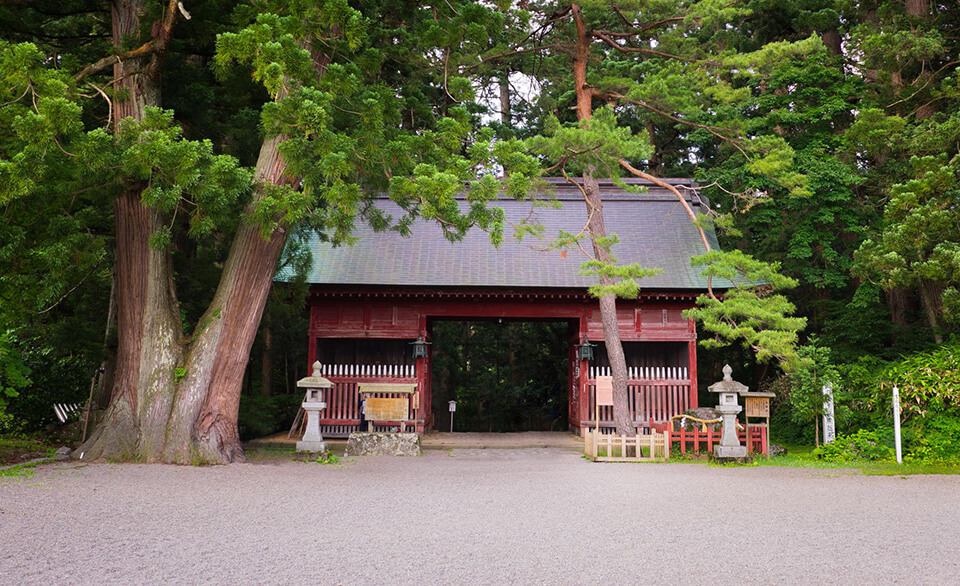
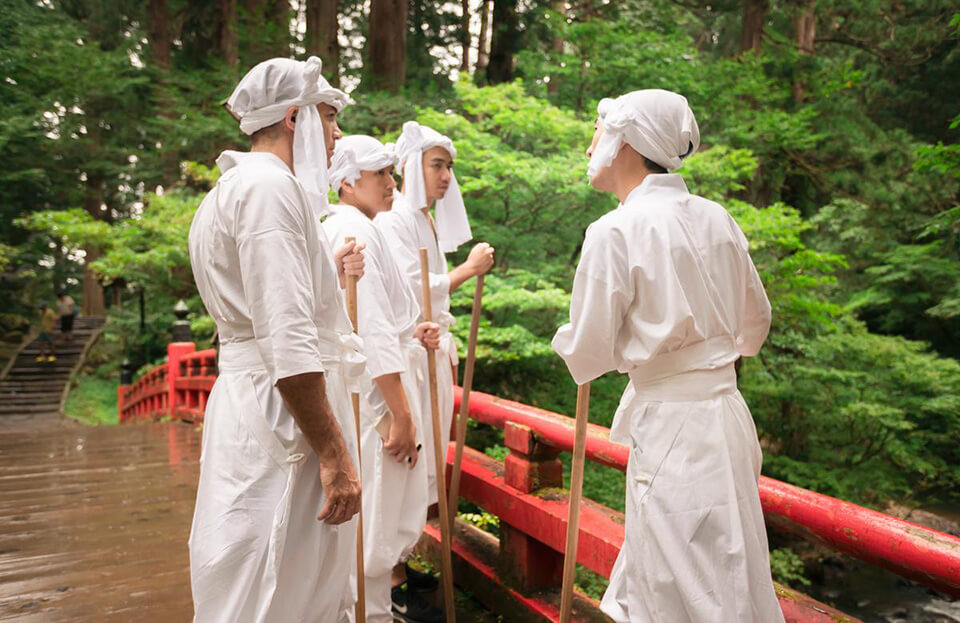
※White clothes rental
It is possible to rent traditional white monk clothing. At Mt. Yudono, rentals are located at the Sanrojo Mountain Lodge. At Mt. Haguro, this can be done at any visitor’s lodge or ryokan. Rentals are limited, so please reserve well in advance. It is said that if you wear this traditional all white clothing while walking Mt. Haguro or Yudono, you’ll be able to absorb even more of nature’s energy.
URL Shoko Travel Click here for details.
Mt. Haguro Five Storied Pagoda
This Japan Heritage Five Storied Pagoda is located within the cedar forest at the entrance to Mt. Haguro’s “first hill” of the climb to the summit. This pagoda is the Tohoku region’s oldest, and is said to have been built by the famous Heian samurai, Taira no Masakado in the mid-Heian period.
Ninosaka Chaya
Ninosaka Chaya is located midway through the shrine road. Take a breather while enjoying the shop’s famous Chikara Mochi. On a clear day, you can even see the plains of the Shonai region. Open hours: Late April-Early November 8:30am-5:00PM
Haniyamahime Shrine
This shrine located on the “third hill” of the shrine road is dedicated to a god of marriage. It is believed that if you pray here after tying the red string of charms bought at the Sanjin Gosaiden shrine, you’ll receive blessings in your married life.
Mt. Haguro Sanjin Gosaiden Shrine
All three gods of the Three Mountains of Dewa are enshrined together in this shrine located on the summit of Mt. Haguro, making this the most significant shrine of Japan. A visit to Sanjin Gosaiden is said to complete your pilgrimage of the mountains.
URL Click here for details.
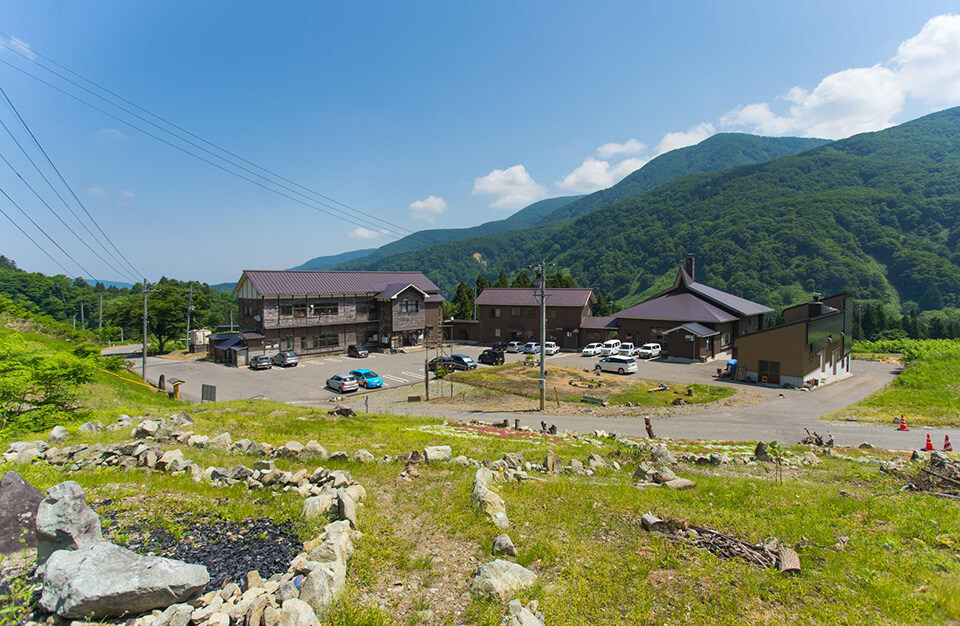
02
Tsukinosawa Onsen Kitagassanso
Kitagassanso is an inn surrounded by beautiful nature near the Tachiyazawa River area. The inn offers plans including dinner and breakfast, which both let you enjoy traditional local cuisine. The hot springs of Kitagassanso are one of only three acidic springs within Yamagata Prefecture. Enjoy the outer and inner rest from the stresses of daily life here.
Closed: Every Tuesday and Wednesday from November-April, December 31-January 3rd, every second Tuesday of the month from May to October.
Day Two
01
Mt. Gassan
Mt. Gassan has been selected as one of the top hundred mountains in Japan in several lists. You can drive up to the eighth point (Hachiaime) on the mountain. You can admire the many species of mountainous plants at Midagahara located nearby. Take a beautiful 60 minute stroll around the wetlands while enjoying fall leaves and beautiful plants that are maintained throughout the year.
Heading back towards the summit from Midagahara takes about 2.5 hours, and is recommended if you have the extra time to spare.
Open season: July 1st to mid-October (varies depending on snow conditions)
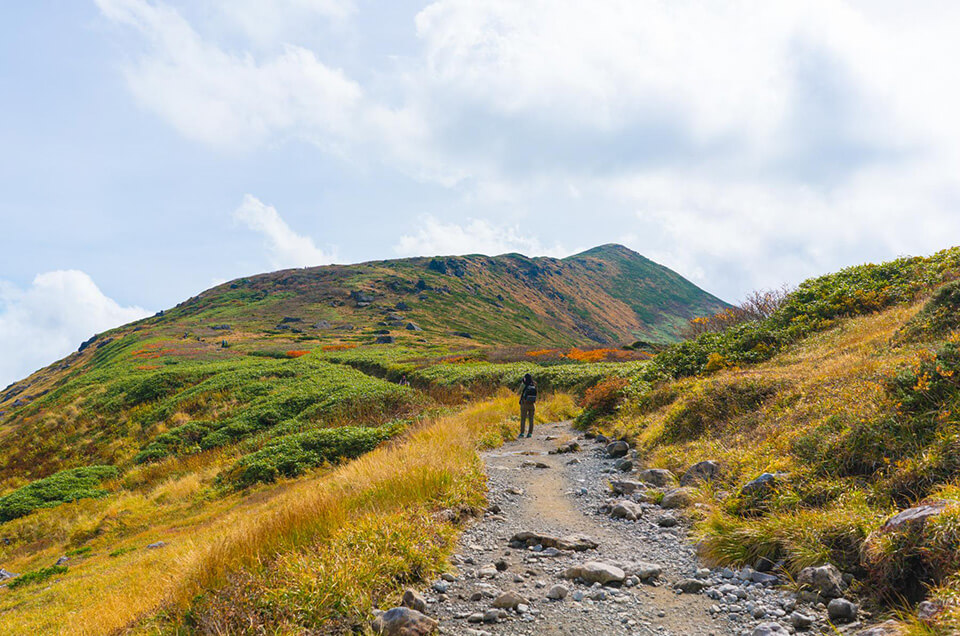
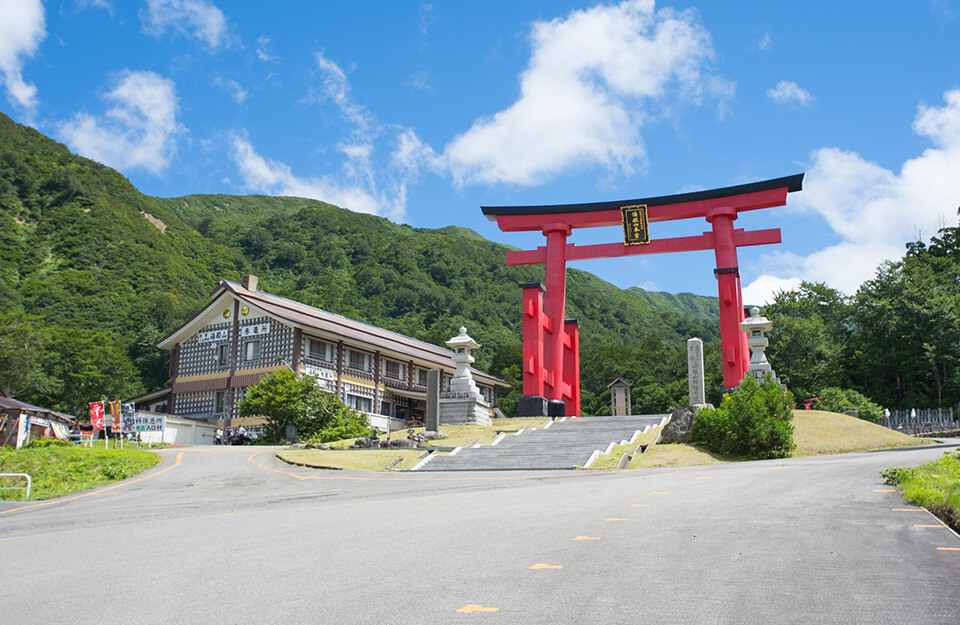
02
Mt. Yudono
Along with Ise and Kumano, this mountain is one of the top three sacred places in Japan. Mt. Yudono Shrine, considered the most holy of the shrines at the Three Mountains of Dewa, is famous for its strict no photos, no shoes policy. The Shugendo ground is also considered so sacred that one is neither to talk nor hear of what happens inside the shrine. Because the hot springs located on the mountain are believed to contain the spirits of deities, they are frequently visited by those who are visiting the shrine. To get to the Yudono Shrine, you can walk approximately 20 minutes from the Senninzawa parking lot, or take a bus (300 yen round trip).
The Mt. Yudono Toll Road runs from the end of April to November 3rd.
Mt. Yudono Sanrojo Mountain Lodge, Mt. Yudono Senninzawa Hot Springs「御神湯」
In the Sanrojo Mountain Lodge located next to Yudono’s giant tori gate, even visitors who aren’t staying a night at the lodge can bathe in the sacred onsen waters. The sister of the Japanese god, Amaterasu, is enshrined here, giving you the chance to relax mind and body in sacred waters.
Entrance price: 500 yen
URL Click here for details
English Click here for details
If you’re planning on having lunch when visiting Mt. Yudono, there are many special shops and restaurants in the “Mt. Yudono Rest House”, as well as a cafeteria in the Sanrojo Mountain Lodge, which serves traditional monk cuisine using seasonal mountain plants and mushrooms.
03
Shojin Otoshi
“Shojin Otoshi” is the traditional culture of Tsuruoka where, after a pilgrimage to the sacred Three Mountains of Dewa and hot springs, one would return to normal daily life and eating. Cap off the end of your pilgrimage by staying overnight at Yunohama, Yutagawa, Yura, or Atsumi Hot Springs, and relax in the springs, enjoy fine dining, and try the local Shonai sake.
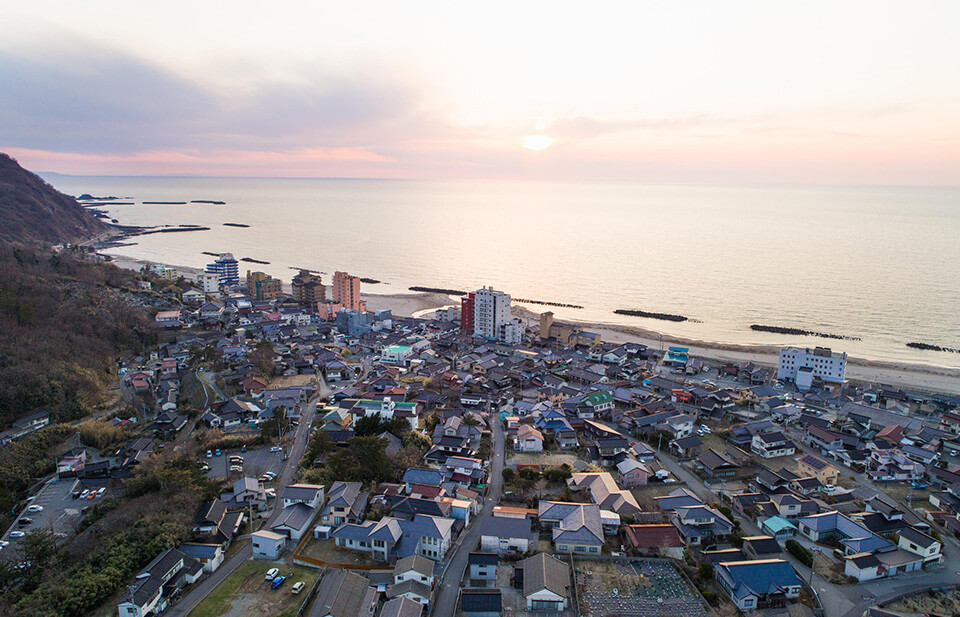
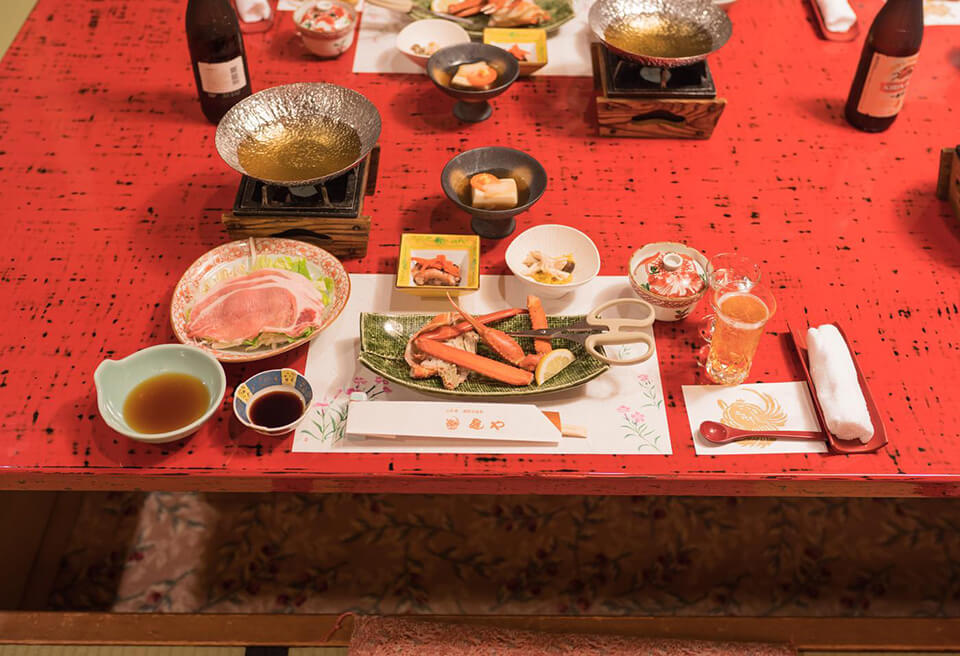
Day Three
01
Aomoriya
At the cafe inside the fruits specialty shop Aomoriya, you can enjoy tarts, fruit salads, and fruit juices all made from fresh seasonal fruits. The fruit juice is made fresh right in front of you, and you can even get it (and the fruit tarts) to go. The shop is within walking distance from Tsuruoka Station.
Cafe hours: 10:30AM~6:30PM
Address: 7-24 Suehiromachi, Tsuruoka, Yamagata Prefecture
URL Click here for details.
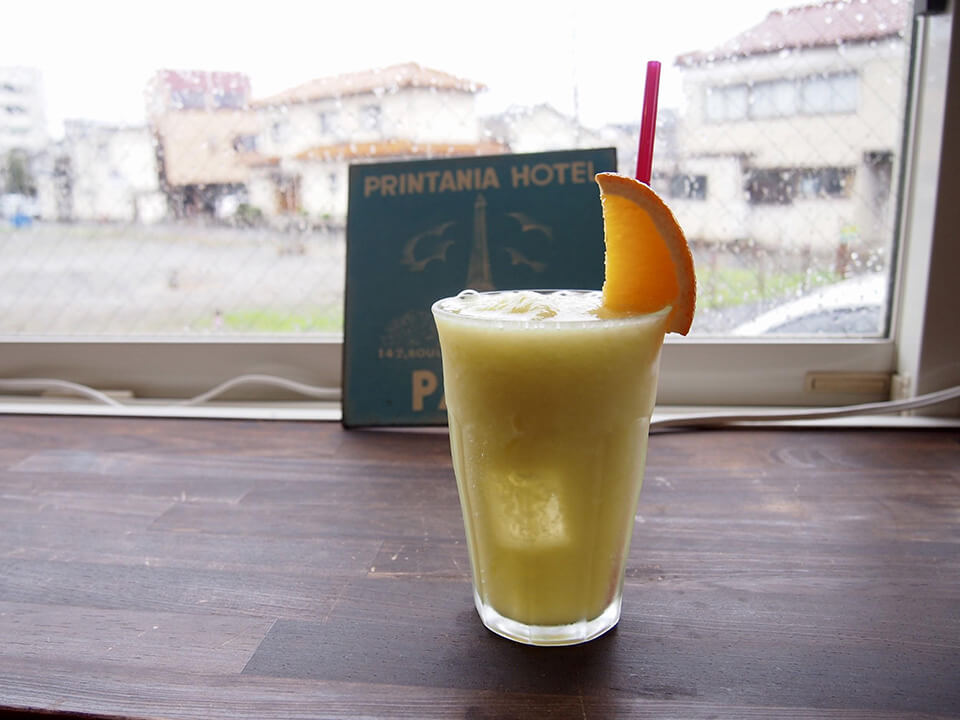
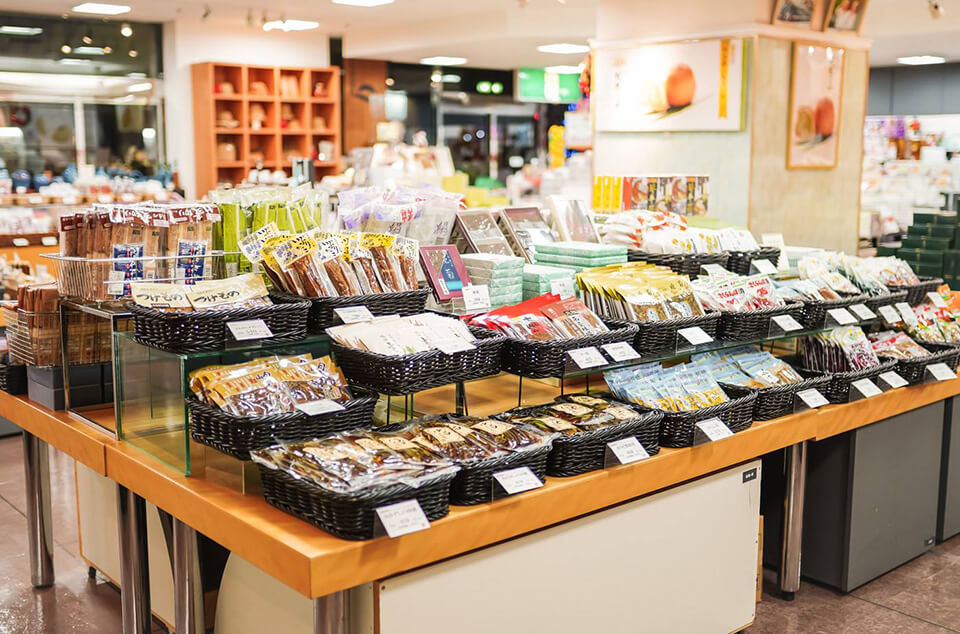
02
Kiyokawaya
Kiyokawa, located within Tsuruoka Station, is a great place to find Yamagata souvenirs. From local sake to fruit, this shop has it all. The shop’s original “Dadako Pudding” and “White Paris Roll” sweets are popular.